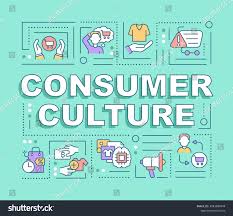Chilling Future: AI Predicts Cancer Risk Decades Ahead With Terrifying Accuracy!

Scientists have unveiled a new artificial intelligence tool, named Delphi-2M, designed to forecast an individual's risk of developing over 1,000 diseases, including cancer, heart disease, and diabetes, more than a decade into the future. Developed by experts from the European Molecular Biology Laboratory (EMBL), the German Cancer Research Centre, and the University of Copenhagen, this generative AI aims to identify high-risk patients early, facilitating preventative measures years before disease onset.
Delphi-2M operates by analyzing patterns within anonymous medical records. It assesses the likelihood and potential timeline for the development of life-threatening conditions by scrutinizing a patient's historical 'medical events' alongside crucial lifestyle factors such as smoking habits, alcohol consumption, and weight. Tomas Fitzgerald, an expert in molecular biology and study co-author, highlighted in Nature that 'Medical events often follow predictable patterns. Our AI model learns those patterns and can forecast future health outcomes.'
The model was rigorously trained and tested using extensive patient data, specifically from 400,000 individuals participating in the UK Biobank study and an additional 1.9 million people from the Danish national patient registry. Researchers anticipate that patients could benefit from this innovation within the coming years, receiving probabilistic forecasts about their disease risk, much like weather predictions.
Professor Ewan Birney, executive director of the EMBL, illustrated how Delphi-2M could be integrated into GP surgeries. Clinicians could utilize the tool to identify a patient's major future health risks and offer targeted advice, such as weight management or smoking cessation, to significantly alter their health trajectory. Beyond individual patient care, Professor Moritz Gerstung of the German Cancer Research Centre noted that the AI model could help anticipate healthcare demand at a larger scale and inform disease-screening programs, optimizing resource allocation.
Despite the promising outlook, other experts have urged caution regarding Delphi-2M's immediate applicability. Professor Justin Stebbing, a consulting oncologist at Anglia Ruskin University, cautioned against interpreting the results as direct causal relationships, pointing out that 'The model reproduces biases found in its training data, including healthy volunteer and selection biases.' Similarly, Professor Peter Bannister, a healthcare expert, highlighted that the datasets used are biased in terms of age, ethnicity, and current healthcare outcomes. He emphasized the critical need for a sufficient digital infrastructure and skills base to ensure equitable access to such technologies, regardless of socioeconomic background.
While the scientists behind Delphi-2M express confidence in its ability to predict 'all diseases at once and over a long time period,' distinguishing it from existing single-disease models, the broader scientific community remains cautiously optimistic. Professor Gustavo Sudre, an expert in neuroimaging and AI at King's College London, commended the model's architecture, which is designed to integrate richer data types like biomarkers, imaging, and genomics in the future. This multimodal approach could evolve the Delphi platform into a sophisticated tool for precision medicine, especially pertinent given warnings from organizations like One Cancer Voice about soaring cancer cases by 2040, underscoring the urgency for advanced diagnostic and preventative technologies.
You may also like...
Digital Portfolios Are the New Business Cards; Here’s How to Build One That Gets Seen

In today’s digital-first economy, your online portfolio is your handshake, résumé, and elevator pitch rolled into one. H...
Career Pivoting: Why Changing Paths Might Be the Smartest Move You Make

In a world where stability often overshadows fulfillment, career pivoting may be the smartest move for professionals se...
Why Your First Failure Might Be the Best Thing That Ever Happened to Your Business

Failure isn’t the end of entrepreneurship, it’s the education success never gives. Here’s why your first business collap...
Consumerism vs Culture: Is Africa Trading Values for Trendy Lifestyles?

Is Africa trading its cultural values for trendy lifestyles? Explore how consumerism, foreign brands, and social media p...
The War on Boys: Are African Male Being Left Behind in Gender Conversations

Why are African boys and men often left out of gender empowerment programs? Explore how emotional suppression, lack of m...
Pay Slip, Motivation Slips: The Silent Crisis Among the Working Class

Across Nigeria, millions of workers are trapped in jobs that pay just enough to survive but too little to live. Beneath ...
Premier League's Unsung Heroes: Bournemouth, Sunderland, and Tottenham Shockingly Exceed Expectations

This Premier League season sees teams like Bournemouth, Sunderland, and Tottenham exceeding expectations. Under Thomas F...
El Clasico Fury: Yamal Controversy and Refereeing Blunders Ignite Post-Match Debates
)
Real Madrid secured a 2-1 El Clasico victory over Barcelona amidst significant controversy surrounding a late penalty de...




